Save to...
Who’s the Real Gatsby? Design and Architecture from the 1974 and 2013 Movies
The Great Gatsby will always get my vote for The Great American Novel. Here’s the tale of a man from humble roots who reinvents himself to pursue an idealized dream, a lost love from his youth. But what is Jay Gatsby like? What was going through his mind as he looked out from his mansion across the Long Island Sound night after night, thinking of Daisy?
Part of the answer can be found in the mansion, for our design choices speak volumes about ourselves. For the 1974 movie featuring Robert Redford, we see a grand Baroque-inspired mansion. If this looks like a Gilded Age mansion, it’s because it is one — the movie was filmed at Rosecliff in Newport, RI, which was modeled after the Grand Trianon in Versailles and shows the aspirations of the Nevada silver mining heiress who commissioned it:

And here are the ornate European interiors of the ballroom at Rosecliff:

I always thought this was the perfect house for Jay Gatsby. Having come from humble roots, he wanted to woo back Daisy by becoming someone else: the heir of an old wealthy family. What better way to do that than move right into the house of one?
Indeed that is the persona that Robert Redford played in the 1974 movie: A passive, if not pathetic, man trying to fit into a world that he did not belong in. He went to extremes to gather and show off his wealth, in the end he was just trying to fit in with the Buchanans. Notice the similarity of the Gatsby mansion to the Buchanans’ estate, Heatherden Hall:

Fast forward to 2013, and we find Leonardo di Caprio playing a different Gatsby: bolder, stronger, and more assertive. Here’s his mansion – a fantasy castle reminiscent of the mad Gothic style of Mad King Ludwig’s Neuschwanstein Castle in Bavaria:

In contrast, the Buchanans’ home is based on the Greek Revival style popular with the Old South aristocrats (think Gone with the Wind and Thomas Jefferson’s Monticello):

Now look at the interior. The Art Deco look of the famous “shirts” scene might look retro now, but it was in fact cutting edge Art Deco design in the 1920’s. Art Deco came into vogue in France during the 1920’s as an homage to the new Machine Age. It was a bold, assertive style of the future (think Chrysler Building and Fritz Lang’s Metropolis), not the past of Rosecliff.

We can also see a bold, Art Deco motif in the floor of the ballroom, along with Gatsby’s initials prominently in the center. Talk about leaving his mark on the world:

When we build, we create a world. What kind of world is it, and where do we belong in it? Even before the first stone is laid, we’ve already asked and answered those questions. Gatsby, unfettered by prosaic considerations of cost and resale value, could create anything he could envision. From what he created, we could peer down into the deepest reaches of his soul. Whereas Redford’s Gatsby was trying to inherit a past that was never his, di Caprio’s Gatsby loudly proclaims “Here I am!” Whereas Redford was timid and uncertain in front of Daisy and Tom, di Caprio has come to take what belongs to him.
Old World and New World Come Together in Stunning Designs from Moser
Featured in Elle Decor, Food and Wine, or Martha Stewart Weddings – to name a few – the colorful barware of Moser Crystal is beautiful, versatile and durable.
Creating the perfect bar at home doesn’t have to mean choosing function over fun. Moser designs highballs, double old fashioneds, and martini glasses that serve their devine purpose as vessels of that perfect cocktail in a stunning array of jewel-like colors and contemporary patterns. Pebbles glasses have a playful texture etched around the base, with a splash of color that fades toward the top of the glass.
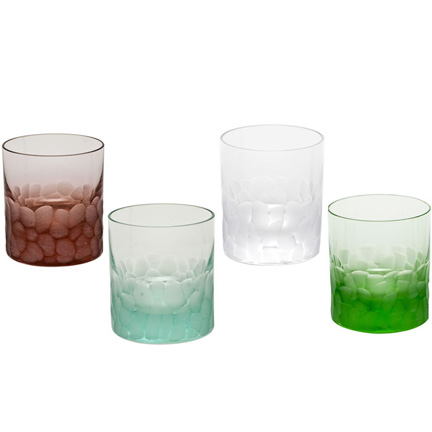
For those who adore color, but also enjoy seeing the shimmer of white wine or the pristine look of a classic martini, Moser creates Lancelot stemware, featuring a brightly colored base with a clear bowl.
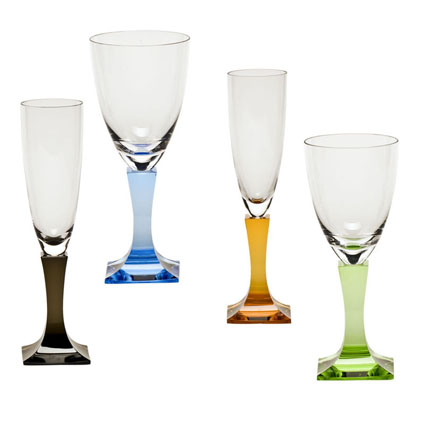
Each crystal design has its own unique history, such as Lady Hamilton, which is the so-called offspring of an earlier design commissioned by Pope Pius XI in 1923. Available in solid crystal or with a shining gilded rim, as shown here.
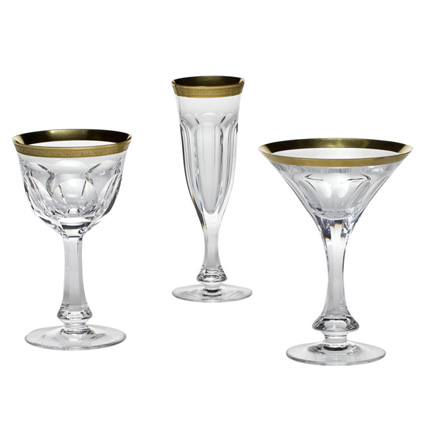
If it’s old-world charm you are looking for, Moser has been delighting Eastern Europe with its crystal for over 150 years. Their dedication to tradition can be seen in their more intricate patterns.
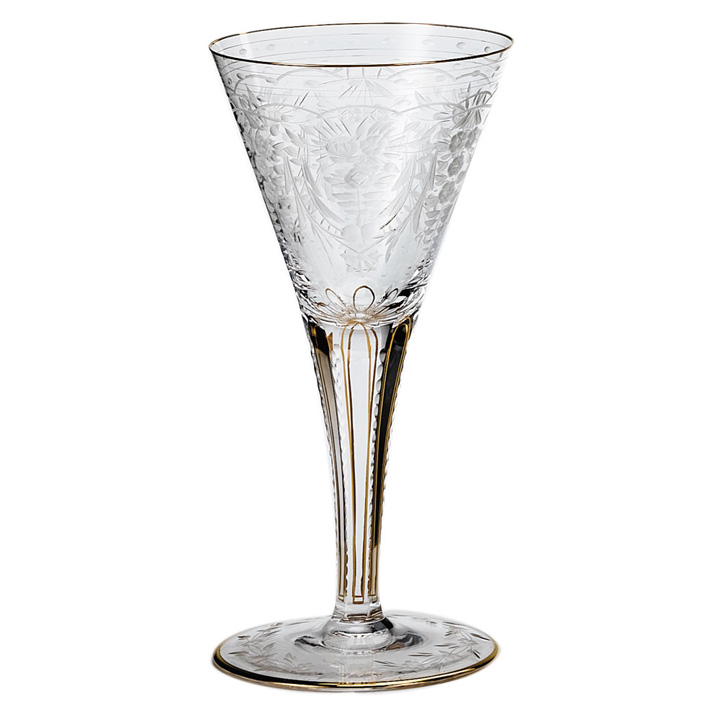
Aside from impeccable bar and stemware designs, bowls and vases are perfect accents in any room, adding color and chic design.
The Globe Vase elevates the youthful underwater motif to high art, shown here in a rich blue that shows off every detail.
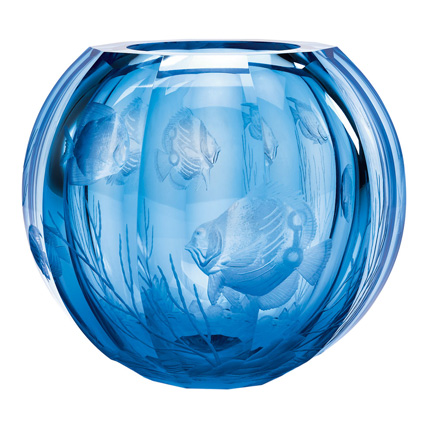
The Pebbles Bowl is an elegant complement to Pebbles Glasses from Moser.
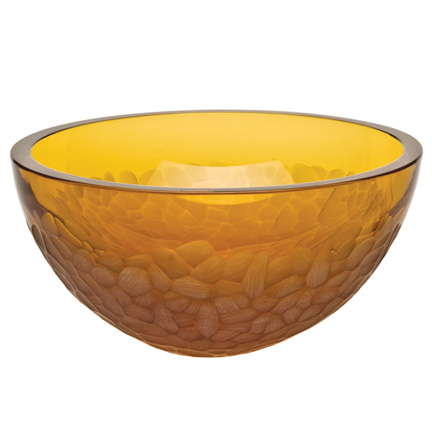
View our new Moser collections and learn more about this company’s rich history at Gracious Style.com.
Mother’s Day is Just Around the Corner – Sunday, May 12th
Your mom deserves all the best every day of the year, but Mother’s Day is the time to show extra appreciation! Treat her to luxuries and keepsakes that will make her smile for years to come.
A scented candle from NEST is a gorgeous gift that smells great too!
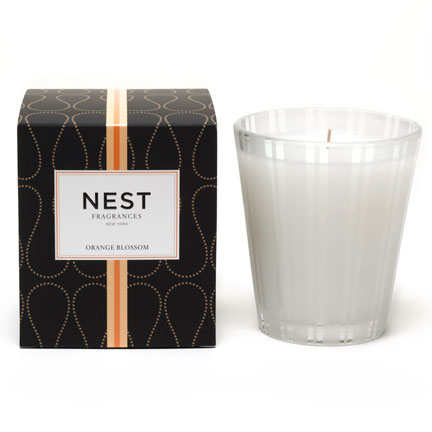
Nothing feels more luxurious or relaxing than lounging in a big spa robe.
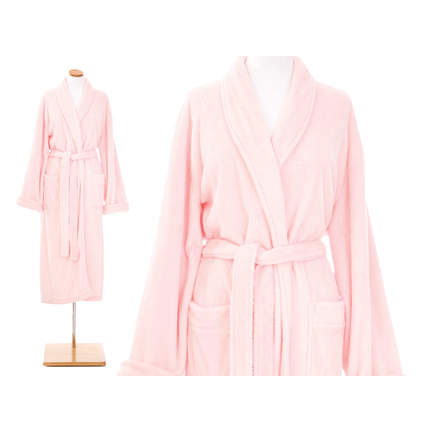
Give Mom beautiful accessories she can use every day.
For the bath…
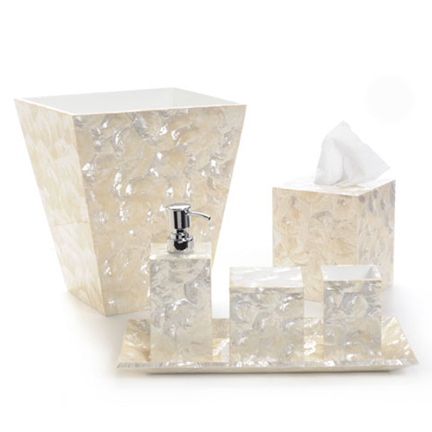
In the kitchen…
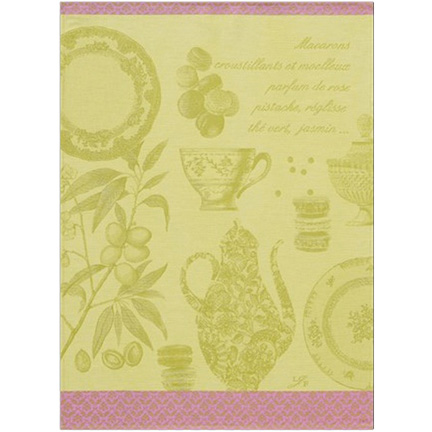
On the go…
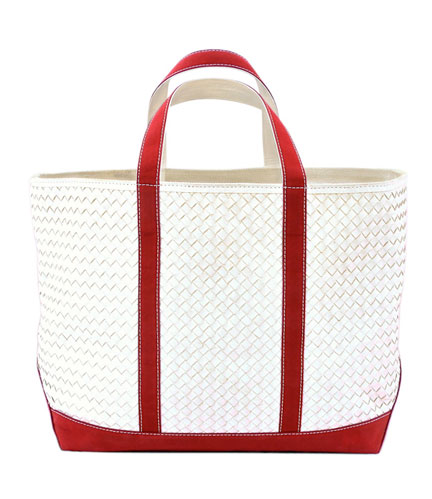
A picture frame with a photo of her loved ones is the perfect keepsake for Mom to cherish.
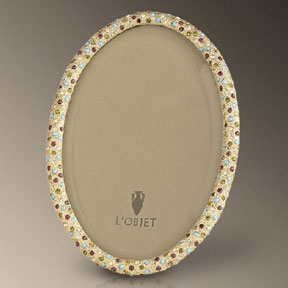
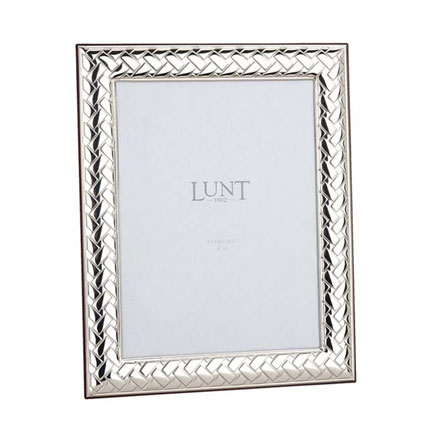
Find more Mother’s Day gifts at GraciousStyle.com.
Black Is Back: Hemisphere Vinyl Dinnerware in Veranda Magazine
Tuxedos, black tie and the Black & White Ball – nothing says elegance like this combination of opposites. Hemisphere Vinyl Stripe dinnerware is a perfect balance of light and dark that will raise the style quotient of any table:

Get the look:
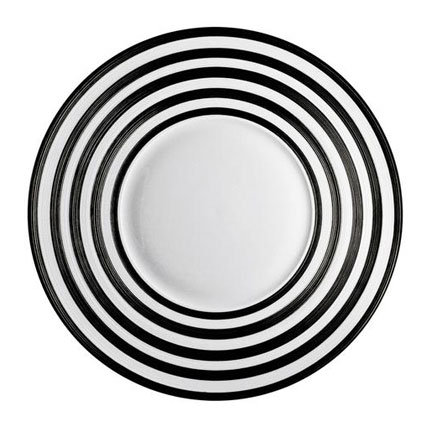
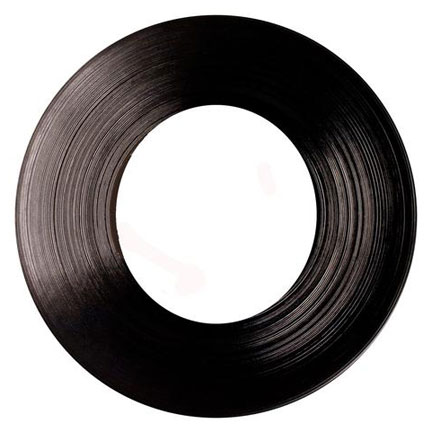
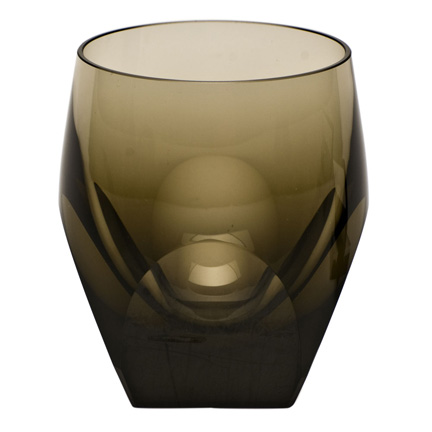
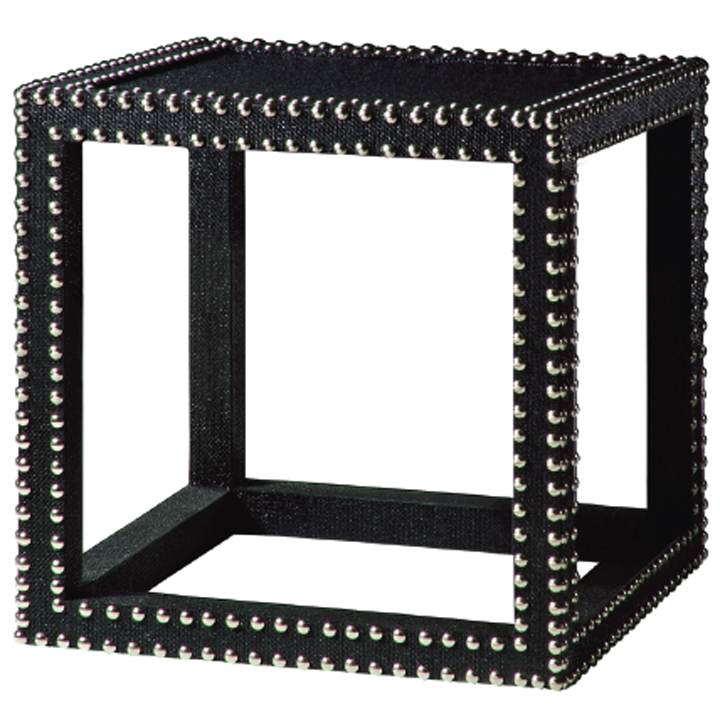
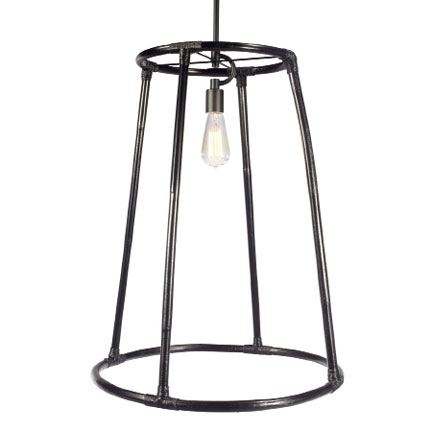
Simply Gorgeous – Corail Gold Dinnerware in Veranda Magazine
Understated elegance defines the Corail Gold dinnerware by Medard de Noblat. The editors at Veranda magazine, who appreciate simple luxuries, featured this pattern in the February 2013 issue:

Inspired by the texture of round coral, each piece features a raised relief pattern of naturalistic bumps and ridges, and is accented with a hint of gold. A solid white version is also available.
New Reductions on Sale Items!
We’ve been adding new items to our Sale section to cover all of your decorating and gifting needs this Spring and Summer.
Redecorating and looking for some fresh color or a new accent accessory?
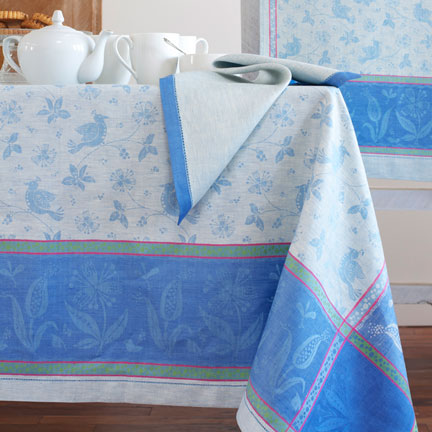
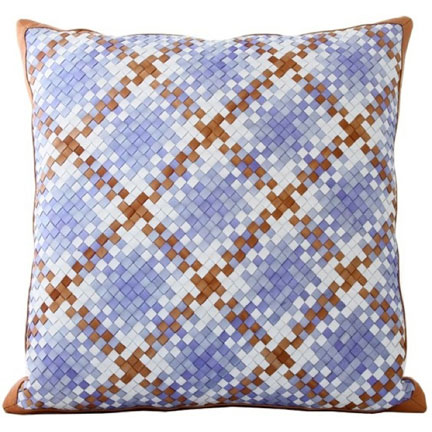
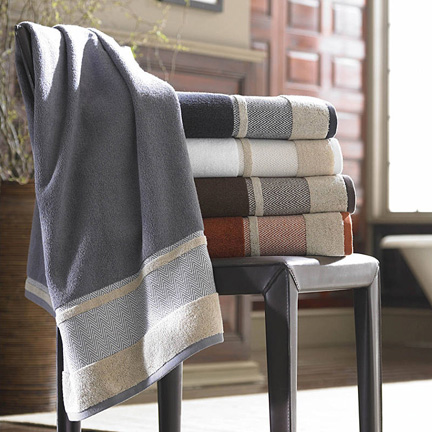
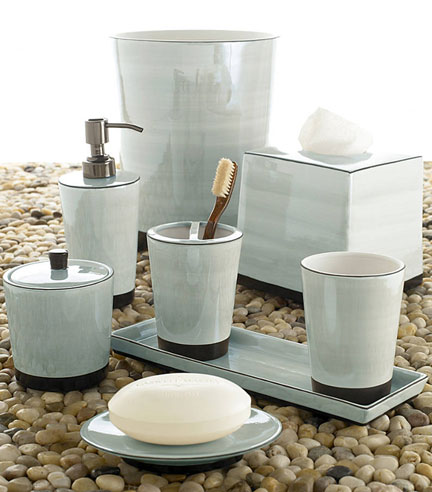
Need the perfect hostess or housewarming gift?
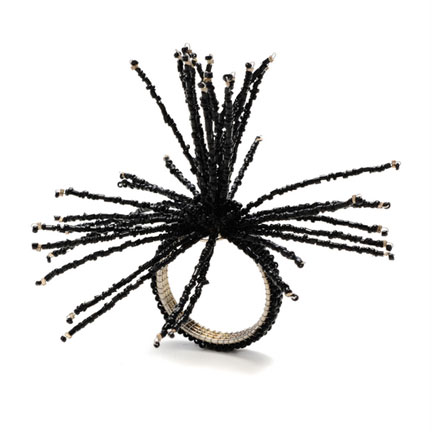
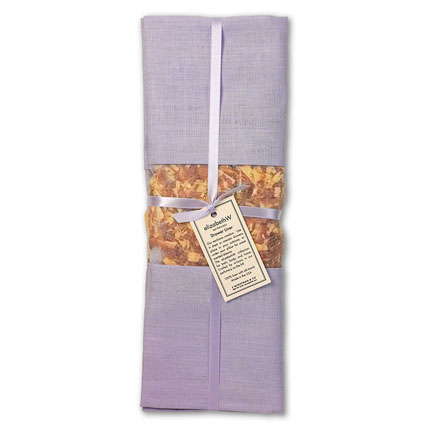
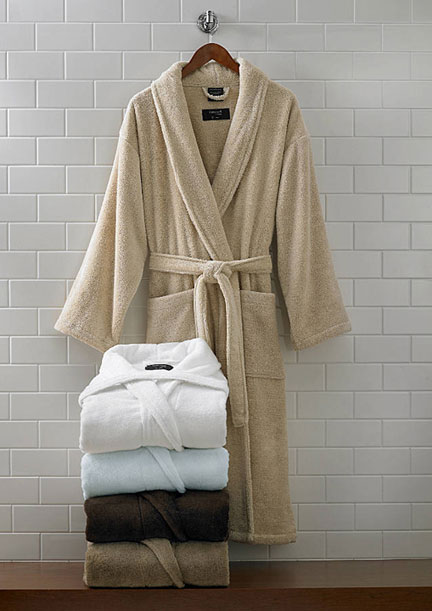
View more items on Sale at GraciousStyle.com.
How We Design Today: Contrasting Styles in Architectural Digest
Is there a defining design style today? The latest AD cover actually sums it up:

Look carefully, and you’ll notice a traditional chandelier:

On top of a very sleek, modern coffee table:

You see small bursts of exoticism and color, but the primary design is neutral and comfortable

Lest you take this for granted, take a look at what was on the cover of AD in 1970:

and 1971:

Back then, we had sharply divided design styles. You were either a Traditionalist or Modernist, and there was no mixing of the two styles. Neither style seemed very comfortable either — could you imagine hopping onto either silk or leather couch on these covers?
In contrast, today’s design has finally balanced both traditional and modern elements and made it all the more comfortable.
Style Goes to the Dogs – Wagwear in Veranda Magazine
Having pets shouldn’t mean sacrificing style – and this chic kitchen does anything but that! Featured in Veranda magazine’s February 2013 issue, the stylish dog accessories are by Wagwear:

Wagwear’s fun, colorful pet accessories are the perfect pieces for turning any corner into a stylish retreat for your dog or cat.
Get the look:
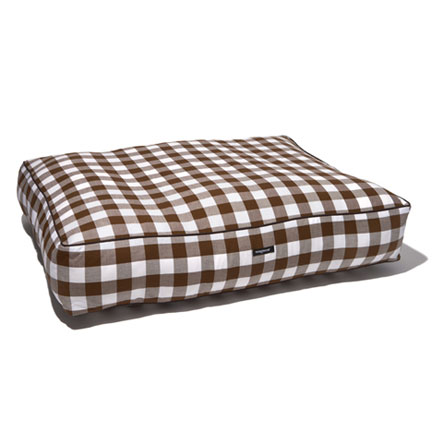

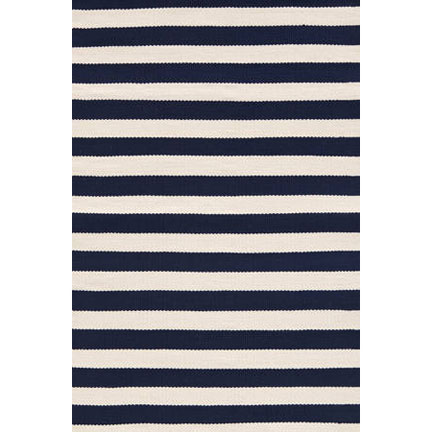
For more Wagwear, visit our pet section at www.GraciousStyle.com
Brighten Up Your Bath With Pigeon & Poodle
The designers at Pigeon & Poodle believe the details of a home are just as important as the furniture. A gorgeous toothbrush holder or handcrafted canister can elevate an entire bath, the perfect frame can heighten the feel of a whole space, and a good-looking storage basket can be your look’s missing link. With thoughtful design and top-notch craftsmanship, Pigeon & Poodle create home accessories with the care and attention typically reserved for larger pieces of décor.
Here are a few of our favorite pieces:
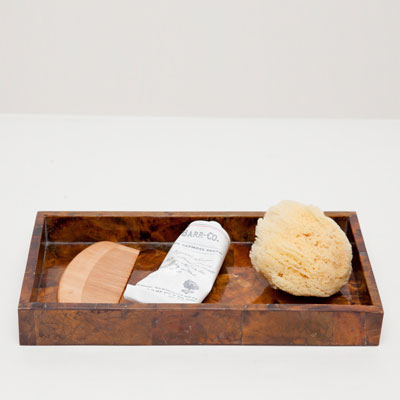
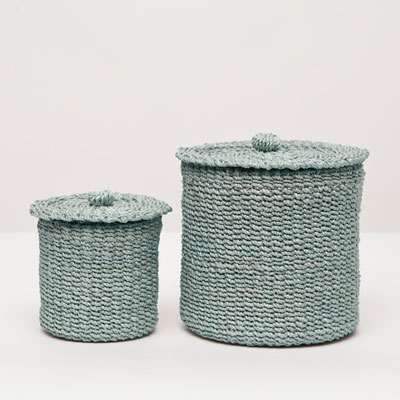
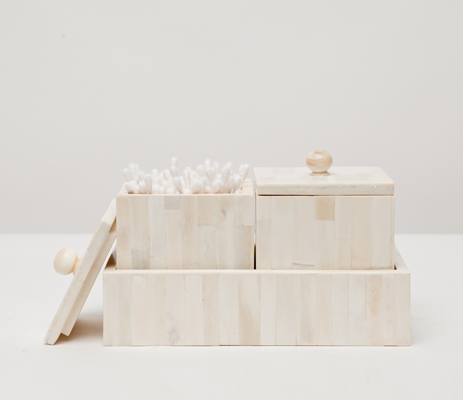
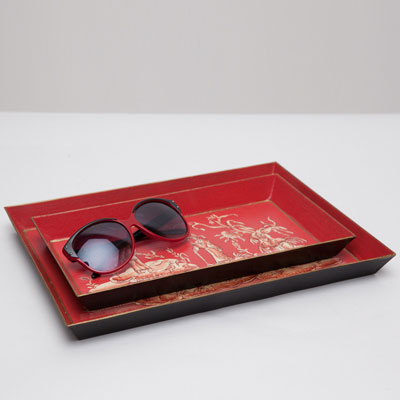
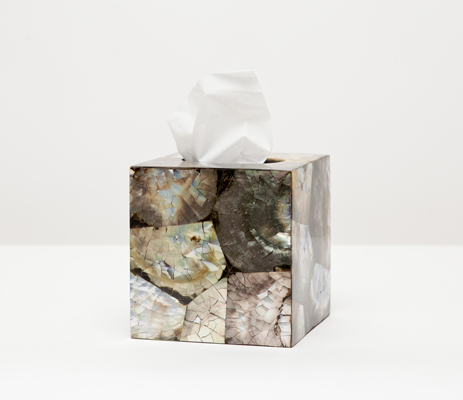
View our entire collection of Pigeon & Poodle accessories.
Do it Yourself: How to Install a Stair Runner

The classic stair runner is like an instant facelift for an old wooden staircase. It adds a touch of personality in an unexpected place. Our friends at Dash & Albert have shown us how to recreate this look with just a few simple steps.
What you’ll need:
Woven cotton or indoor/outdoor stair runner of your choice; measure your stairs first to determine the total length needed (see step 1)
2’ x 8’ rug pads; measure your stairs first to determine the total length needed (see step 1)
Fabric scissors
Pneumatic staple gun
3/8-inch to 1/2-inch staples
Tape measure
Yardstick or other straight edge
Double-stick carpet tape
Pencil
Marker
Bolster chisel
A little patience
How to do it:
1. To determine how long a runner you’ll need, measure the depth of the stair tread and the height of the riser. Multiply the total by the number of stairs; this is your total runner length.


2. Measure the width of the treads from end to end, or from end to banisters. Mark the middle with a pencil.


3. Create individual rug pads for each stair tread by fitting the top edge of the pad against the back of the tread and gently straightening it.

4. Mark the cut line on the pad about .5 inches from the front of the stair tread. (Note that the runner will be slightly wider than the rug pad, and thus the edges of the rug pad won’t peek out from underneath.) Cut the rug pad along the line with fabric scissors. Measure and cut as many rug pads as needed to cover all treads.
5. Cut three pieces of double-stick carpet tape to fit the two outer edges and the middle of each rug-pad tread cover. Place them on the rug pad, making sure to align two pieces of the tape with the outer edges of the pad.


6. Fold the cut rug pads in half, preferably tape side out, to find the center.

7. Place the rug pads, tape side down, onto each tread, aligning the center fold with the pencil marks you created in the middle of each tread. Press with your hands to smooth out any bubbles.


8. Subtract the width of the runner from the width of the stair treads; the difference is the amount of space you’ll leave on each side of the runner. You can mark these points to make them easier to follow. Important: As you install the runner, periodically check this measurement to ensure that the runner remains straight all the way down.




9. Align the top of the runner with the bottom edge of the first tread. This creates a cleaner, less bulky look than going all the way over the top of the first tread, and eliminates “floating” pieces at the top of the stairs.

10. Using a pneumatic staple gun, staple the runner in place at its top edge, approximately every 3 inches. Be sure to include staples on both of the outer edges.

11. Use a bolster chisel to pull the runner taut against the corner of the riser and the next tread. Staple against the bottom of the riser approximately every 3 inches, including both of the outer edges. If you’re using a striped runner, step back and check to make sure the stripes are straight before moving on.


12. For a “waterfall”-style installation, which is a bit easier, simply pull the loose end of the runner over the edge of the next stair tread and repeat step 10.

13. For stair treads that have bullnoses, you can also do a “wrap”-style installation. Pull the loose end of the runner over the edge of the tread and use the bolster chisel to pull it taut around the bullnose. Staple underneath the bullnose against the riser approximately every 3 inches, including both the outer edges.


14. Repeat steps 9 through 11 or 12, until you reach the end of your first runner. Leaving about a 2-inch piece for overlap, cut off any remnant of runner, including the finished edge, to reduce bulk.



15. Overlap the 2-inch scrap of runner with the second runner, being careful to align the outer edges of the runners.

16. Begin the stapling process again.

17. When you get to the bottom stair, pull the runner taut against the bottom riser with the bolster chisel, then measure an extra 2 inches of runner. Mark, and cut with fabric scissors.

18. Fold under the extra 2 inches of runner, and staple the double layer of fabric against the bottom of the riser, approximately 3 inches apart, including both the outer edges.



Finished “waterfall”-style stair runner

Finished “wrap”-style stair runner

View our rugs and runners at GraciousStyle.com.
